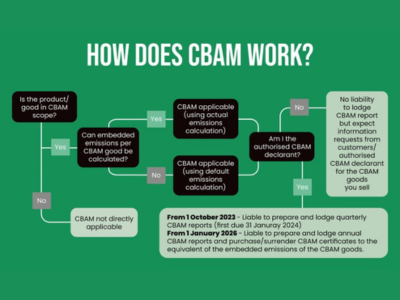In the relentless pursuit of combating climate change, innovative solutions are crucial. One such groundbreaking approach is carbon markets. Let’s embark on a journey to understand what carbon markets are and unravel the profound reasons for their importance.
Demystifying Carbon Markets:
- Conceptual Framework:
Carbon markets are specialized financial platforms where entities trade carbon credits, essentially permits that authorize a specified level of carbon dioxide emissions. The primary objective is to create economic incentives for reducing greenhouse gas emissions. - Diverse Ecosystem:
There are two primary types of carbon markets – compliance and voluntary. Compliance markets emerge in response to national, regional, or international policies, such as emissions trading systems (ETS). Voluntary markets, on the other hand, operate based on individual or corporate initiatives to offset carbon footprints voluntarily. - Turning Emissions into a Commodity:
Carbon markets function by assigning a price to CO2 emissions, categorizing them into carbon credits or offsets. When a credit is utilized to mitigate, sequester, or prevent emissions, it transforms into an offset and is no longer tradable.
The Crucial Importance of Carbon Markets:
- Mobilizing Resources and Cost Reduction:
Carbon markets serve as catalysts, mobilizing resources and cutting costs for countries and businesses striving to address climate change. The financial incentive to reduce emissions creates a dynamic market that rewards those actively contributing to environmental sustainability. - Economic Valuation of Emissions:By putting a price on emissions, carbon markets establish a mechanism to reward nations and businesses for long-term emission reduction efforts. This economic valuation provides a tangible metric for progress and encourages continual improvement.
- Creating New Market Opportunities:
Carbon markets are not just about restrictions; they open up new vistas of investment opportunities. Businesses can buy and sell carbon credits, fostering a marketplace that supports sustainable practices and drives innovation. - Mitigating the Environmental Crisis:
At its core, carbon markets play a pivotal role in mitigating the environmental crisis. They provide a structured pathway for individuals and corporations to trade carbon credits, offsetting their emissions and contributing to the global fight against climate change.
Controversies and the Path Forward:
While the importance of carbon markets is evident, controversies persist. Critics argue that mandatory programs might interfere with free markets. Nevertheless, the undeniable impact and potential for positive change continue to drive the evolution of carbon markets as tools for environmental stewardship.
In conclusion, carbon markets represent a paradigm shift in addressing climate change. They align economic incentives with environmental responsibility, creating a synergy that propels us toward a sustainable future. Understanding their intricacies is not just a necessity for policymakers; it’s an empowering knowledge for every individual and business committed to making a positive impact on our planet. As we step into a future defined by environmental consciousness, carbon markets stand as beacons of hope, proving that economic prosperity and ecological responsibility can indeed go hand in hand.




